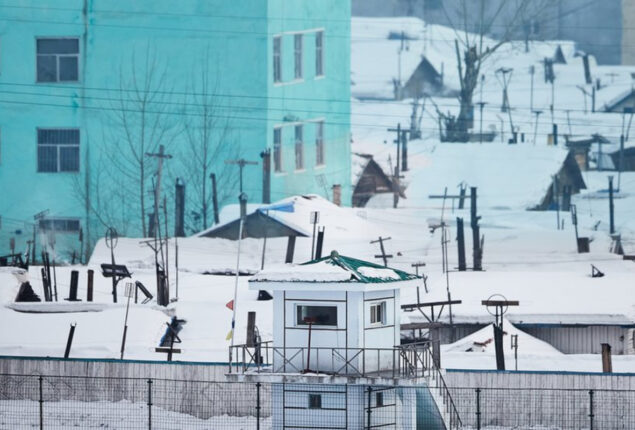North Korea issues a weather warning for “extreme cold”
Temperatures are expected to drop below -30C. North Korean northern regions are...

North Korea issues a weather advisory for “severe cold”
Authorities in North Korea have issued warnings about severe weather as a cold wave sweeps the Korean peninsula.
The poorest portion of the country, the Northern provinces, are expected to see temperatures below -30C, according to the state radio broadcaster.
High winds are also anticipated for coastal areas, according to official media.
Additionally, a cold wave warning has been issued for South Korea, and record-low temperatures have been recorded in northern China.
This week, temperatures in Japan are predicted to reach their lowest levels in ten years.
Although North Korea has experienced extreme or unfavorable weather, much less is known about how this has affected its population.
The poorest provinces in the nation and those thought to be most sensitive to climatic shocks are all in the north: Ryanggang, North Hamgyong, and South Hamgyong.
Outside of Pyongyang, the capital, electricity is rare, and households there utilize wood and dried plants to stay warm throughout the winter, according to NK News.
Additionally, it claims that many people just wrap plastic wrap around their doors and windows for insulation.
A “huge number” of people in the nation went missing late last year during yet another brutal winter snap, according to a December report from Radio Free Asia.
As the temperature dropped below freezing and food became scarce, many are believed to have frozen or starved to death.
Coldest temperatures ever recorded in China’s “North Pole.” The arctic regions and Europe are the most affected by warming
Lucas Rengifo-Keller, a research analyst at the Peterson Institute for International Economics in the US, claims that food insecurity in North Korea is at its worst since a major famine in the 1990s.
According to scientists, climate change is leading to an increase in the frequency of extreme weather, particularly cold waves.
The cold wave warnings on Tuesday come as Pyongyang gears up to commemorate the Korean People’s Army’s 75th anniversary the following week.
Catch all the International News, World News, Breaking News Event and Latest News Updates on The BOL News
Download The BOL News App to get the Daily News Update & Follow us on Google News.